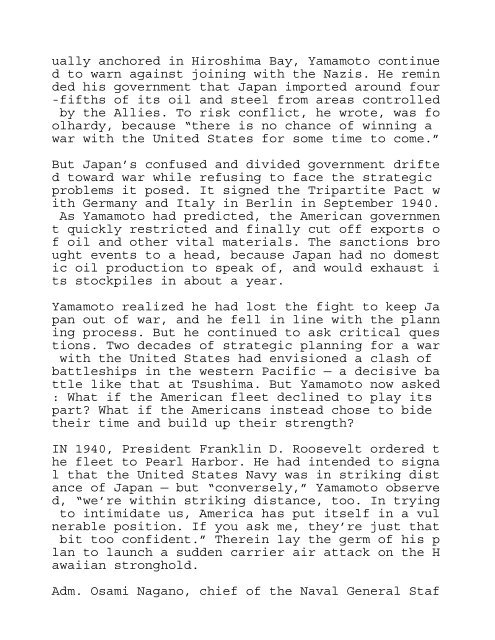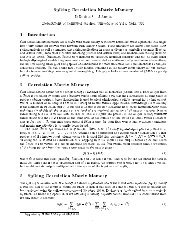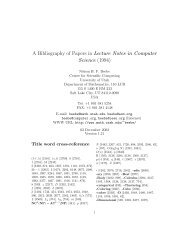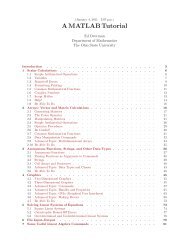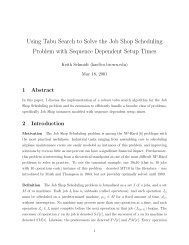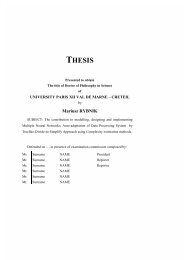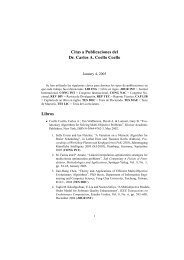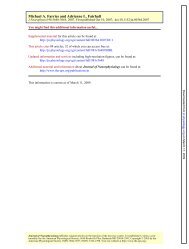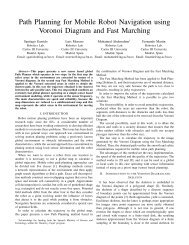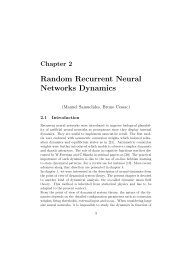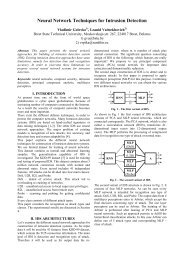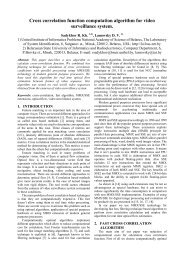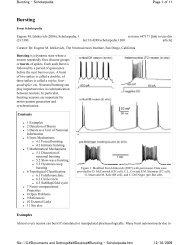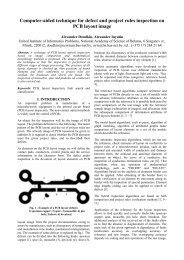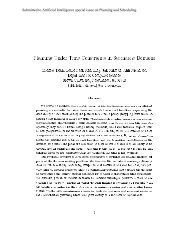NYT-1201: STATE OF THE ART A Thermostat That's Clever, Not ...
NYT-1201: STATE OF THE ART A Thermostat That's Clever, Not ...
NYT-1201: STATE OF THE ART A Thermostat That's Clever, Not ...
Create successful ePaper yourself
Turn your PDF publications into a flip-book with our unique Google optimized e-Paper software.
ually anchored in Hiroshima Bay, Yamamoto continue<br />
d to warn against joining with the Nazis. He remin<br />
ded his government that Japan imported around four<br />
-fifths of its oil and steel from areas controlled<br />
by the Allies. To risk conflict, he wrote, was fo<br />
olhardy, because “there is no chance of winning a<br />
war with the United States for some time to come.”<br />
But Japan’s confused and divided government drifte<br />
d toward war while refusing to face the strategic<br />
problems it posed. It signed the Tripartite Pact w<br />
ith Germany and Italy in Berlin in September 1940.<br />
As Yamamoto had predicted, the American governmen<br />
t quickly restricted and finally cut off exports o<br />
f oil and other vital materials. The sanctions bro<br />
ught events to a head, because Japan had no domest<br />
ic oil production to speak of, and would exhaust i<br />
ts stockpiles in about a year.<br />
Yamamoto realized he had lost the fight to keep Ja<br />
pan out of war, and he fell in line with the plann<br />
ing process. But he continued to ask critical ques<br />
tions. Two decades of strategic planning for a war<br />
with the United States had envisioned a clash of<br />
battleships in the western Pacific — a decisive ba<br />
ttle like that at Tsushima. But Yamamoto now asked<br />
: What if the American fleet declined to play its<br />
part? What if the Americans instead chose to bide<br />
their time and build up their strength?<br />
IN 1940, President Franklin D. Roosevelt ordered t<br />
he fleet to Pearl Harbor. He had intended to signa<br />
l that the United States Navy was in striking dist<br />
ance of Japan — but “conversely,” Yamamoto observe<br />
d, “we’re within striking distance, too. In trying<br />
to intimidate us, America has put itself in a vul<br />
nerable position. If you ask me, they’re just that<br />
bit too confident.” Therein lay the germ of his p<br />
lan to launch a sudden carrier air attack on the H<br />
awaiian stronghold.<br />
Adm. Osami Nagano, chief of the Naval General Staf


